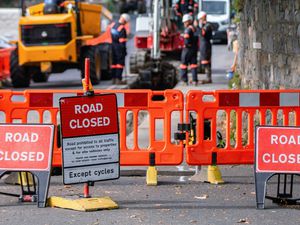PODCAST: ‘Fundamental problem with tax review is the timing’
A fundamental review of ‘the vital and not vital work’ being done by the States is needed before any new tax can be justified, according to the deputy behind a set of alternative Tax Review proposals.

Speaking on the latest edition of the Guernsey Press Politics Podcast, former deputy chief minister Heidi Soulsby said Policy & Resources had omitted several important issues from its considerations when setting out to solve the predicted structural deficit.
‘There’s loads of things that P&R haven’t looked at that we think could be addressed,’ she said, explaining that her amendment, if successful, would instruct them to conduct more assessments and report back in just over two years’ time, after the next election.
‘What we’re talking about here is what government actually does – what services are provided,’ she said. ‘Are we providing too much? Are we doing the wrong things? Could we do it in a different way?’
Listen to an in-depth interview with Deputy Soulsby on the Guernsey Press Politics Podcast
Islanders were in the dark about what their taxes were going towards, she claimed, and the solution was to bring about ‘direct public involvement’.
‘This is the problem with the proposals – people just don’t know what we’re actually paying for,’ she said.
‘People don’t understand that there is vital work being done here, but actually not vital work being done there, which could save the States money.’
Though when asked to give an example of a piece of ‘not vital work’, she said she did not want to prejudge the work of a committee she is proposing is established in order to conduct the review.
At the January States meeting, which starts on Wednesday, members of P&R, along with the president of Employment & Social Security, will set out their case for reforming social security contributions, introducing a new, lower income tax band at 15% for earnings up to £30,000 and bringing in a goods and services tax at 5%.
Deputy Soulsby hopes to persuade her fellow States members to reject their plan, not because she is against a GST in principle, but because of the timing.
‘The real, fundamental problem with their proposals is they’ve come far too little, too late,’ she said.
‘We’re nearly halfway through this term and they’re expecting to be able to bring in a whole new tax by the end of this term. That means a whole new IT system, when they’re already behind on the Revenue Service programme. It means getting legislation through.’
This would mean the next election would inevitably be fought on the single issue of GST, she claimed.
‘I don’t think that’s good for democracy. That’s what we’re trying to avoid here.’
How next week’s debate is likely to proceed
Heidi Soulsby;s ‘Fairer Alternative’ is designed to replace P&R’s proposals with her own, as – largely – does another set of proposals submitted by Charles Parkinson.
It will not be possible for both to be adopted, though a combination of the two may result from a further series of late amendments, if they are permitted to be laid.
However, neither of these plans, nor P&R’s, will be debated at all if a sursis from Deputy Carl Meerveld is successful.
This will be debated, according to the rules, immediately after P&R president Deputy Peter Ferbrache’s opening speech.
If it fails, Bailiff Richard McMahon, as presiding officer, will decide in which order the amendments are debated.
According to precedent, he is likely to put first those that seek most fundamentally to alter the original propositions. In this case, some senior politicians suspect that that will be Deputy Soulsby’s.
However, she is not taking that for granted and she intends to discuss the matter with Deputy Parkinson.
‘We will be talking about how it works because we don’t know, at the moment, the order of play,’ she said.
‘We know that Deputy Meerveld’s got his sursis motive – that will be debated first. That’s what the rules are.
‘I don’t know where it will turn, in terms of Deputy Parkinson’s amendment and ours, either, so we’re a bit in the dark at the moment – it’s a bit difficult to know.’





